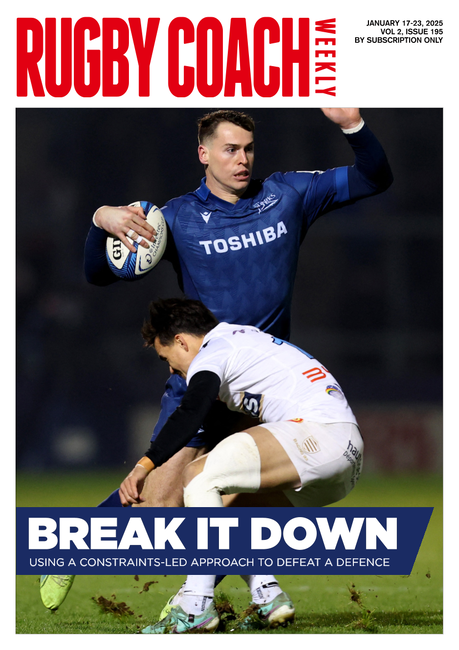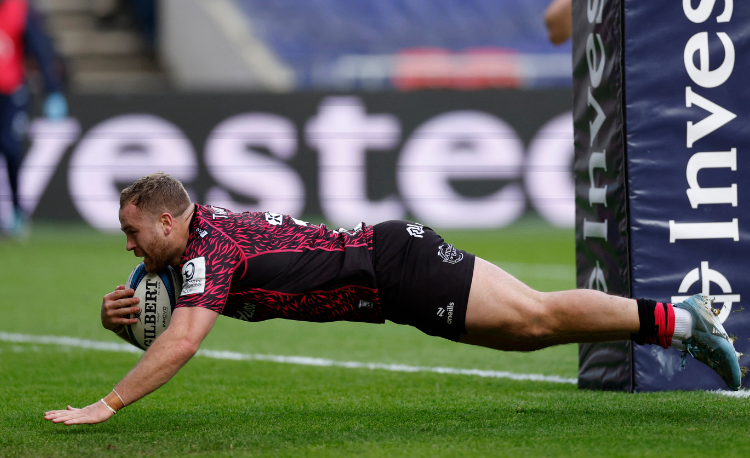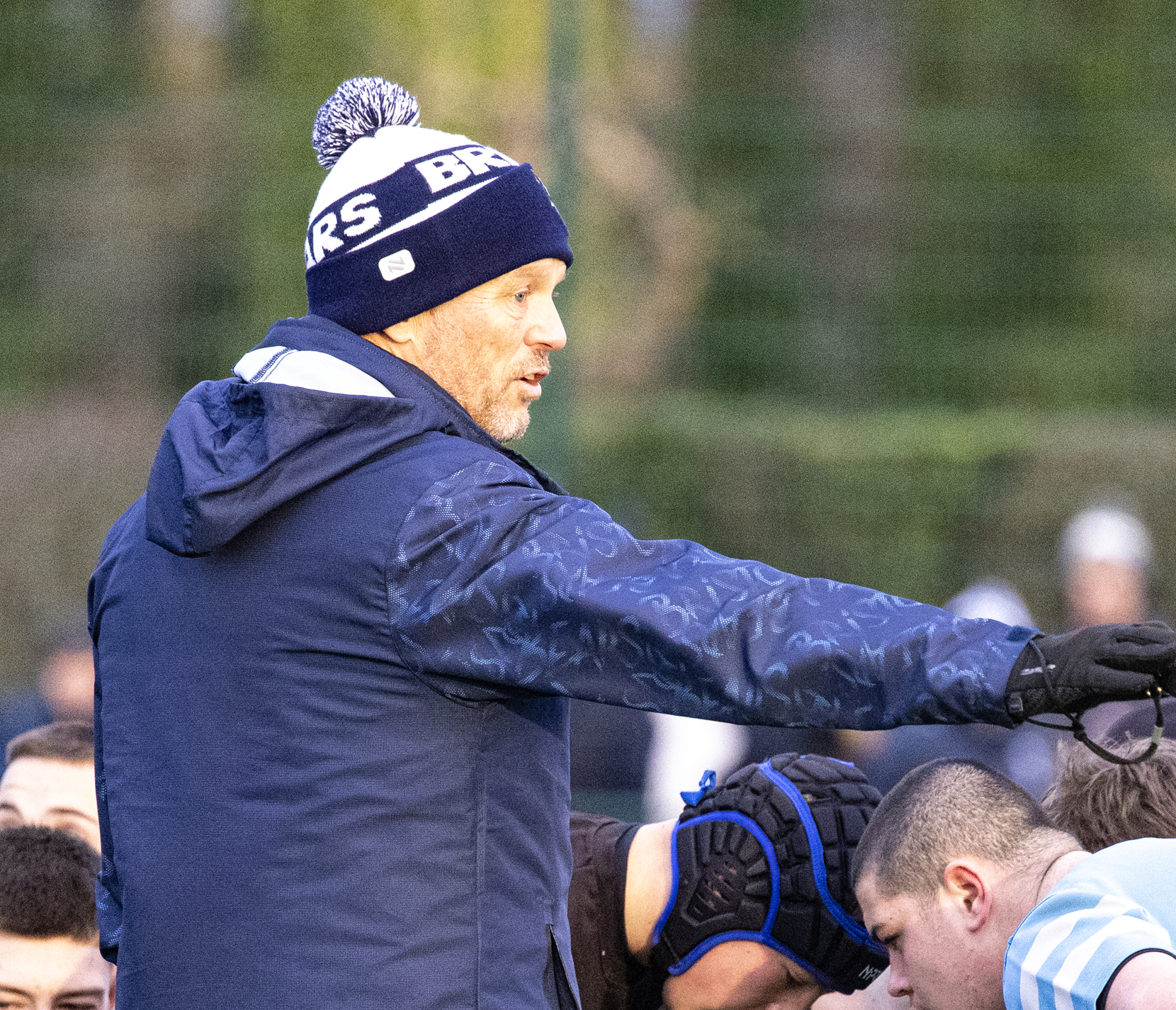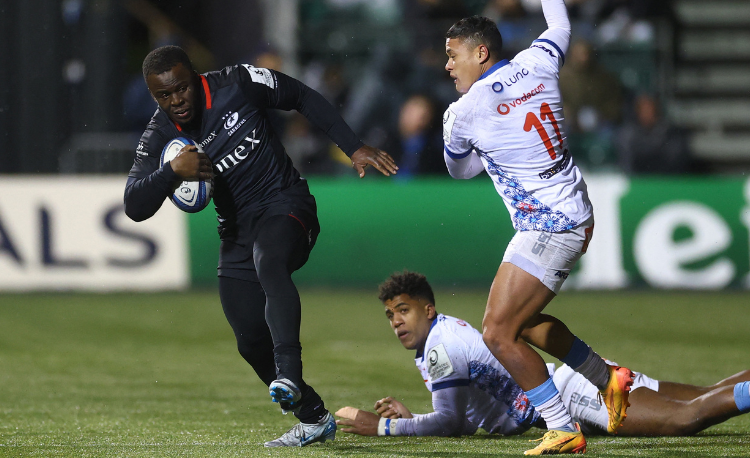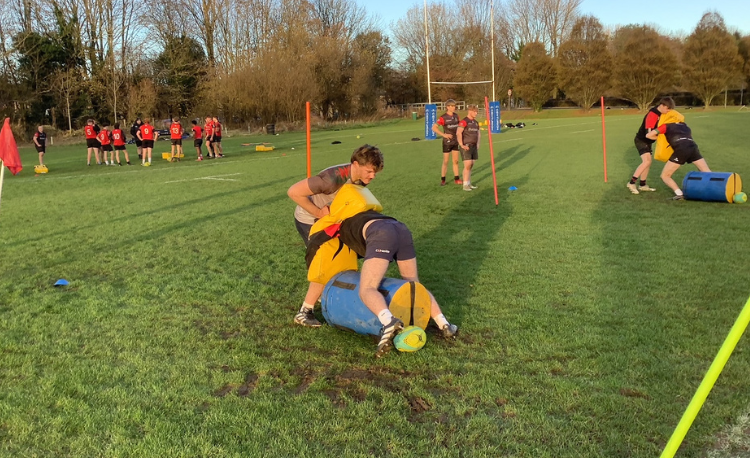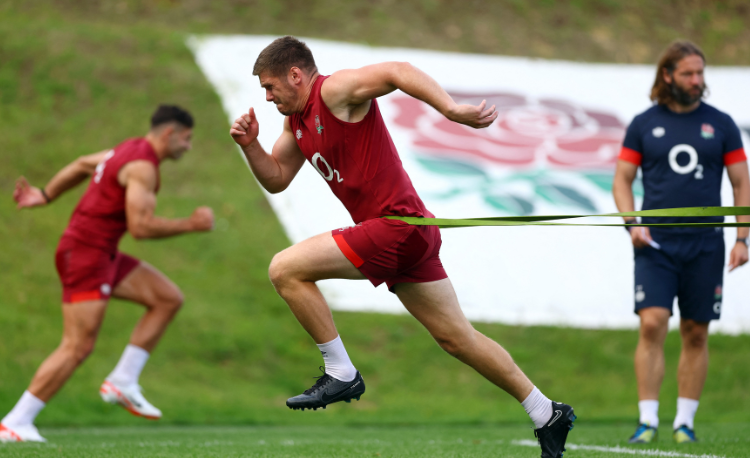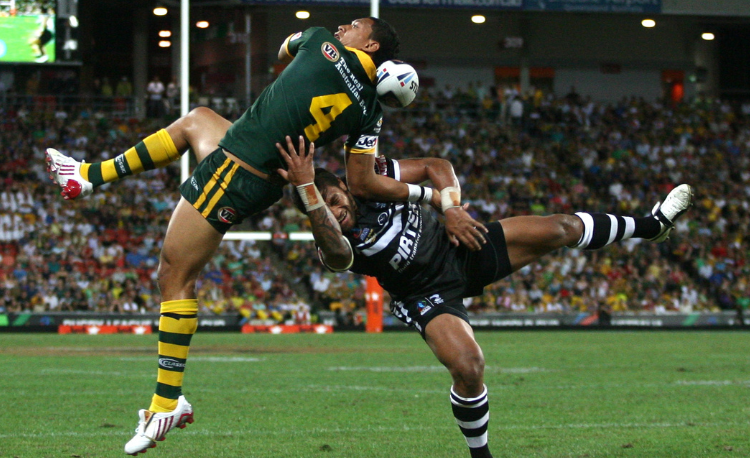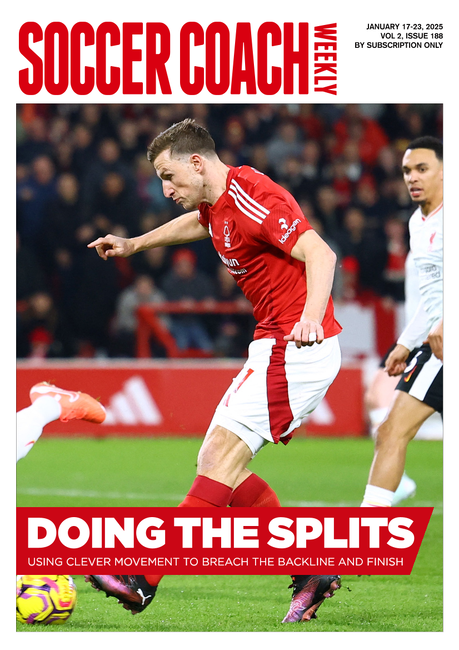Have you thought about coaching rugby in China?
Ian Hall says that China is a vibrant and growing rugby community that might be a brilliant stop-off for any coach who wants to broaden their coaching CV.

It’s a cold wet Saturday afternoon and it’s been raining heavily for three days. You know the pitch is going to be a quagmire and, after 15 minutes in the mud, no one will be able to distinguish one team from another.
Remember how much fun it was to play rugby in these conditions? We would call it a bit of a leveller. Backs struggle to execute their dazzling side steps and forwards get stuck like they’re squashing grapes.

This is not what Chinese rugby looks like. Their emerging game of rugby doesn’t suffer this sort of rugby experience. Why? Because there a very few grass pitches. And in schools, only artificial pitches exist often doubling up for football and basketball.
In most of China, there just aren't the facilities available for kids to participate in team sports like rugby. But tag rugby is possible because of the huge number of artificial pitches available across China.
And it is tag rugby, played from an early age, that can provide the ideal platform to build awareness and interest in rugby amongst schools. This is the opportunity being grasped in the Olympic city of Qingdao, which is one of the key centres of excellence for the growing popularity of rugby in China.
 The Qingdao Sharks Rugby football team spearheads this growth. It reaches out to schools with an ambitious programme to get the kids and their parents understanding and interested in the benefits of the game. This programme is led by Luna Wang (pictured with me) – a professional, engaging and enthusiastic advocate of game with a passion to build the benefits of rugby across Qingdao. With the backing of her father, who understands the lifelong values of the sport, she’s fully utilising the Sharks’ resources to reach out to schools across the region.
The Qingdao Sharks Rugby football team spearheads this growth. It reaches out to schools with an ambitious programme to get the kids and their parents understanding and interested in the benefits of the game. This programme is led by Luna Wang (pictured with me) – a professional, engaging and enthusiastic advocate of game with a passion to build the benefits of rugby across Qingdao. With the backing of her father, who understands the lifelong values of the sport, she’s fully utilising the Sharks’ resources to reach out to schools across the region.
Chinese challenges
The lack of grass pitches is just one of her challenges. Luna must endure many other barriers if rugby in China is to grow sufficiently to become a main stream sport.
Chinese children really don't have much free time for sports. Ross Carbutt, an established rugby coach now located in Changzhou, Jiangsu province of China, gives a good example of this.
Over summer, I often do extra English teaching and tutoring. This summer, I was teaching three very bright and hardworking 10 year old kids. One of the first lessons we had was for them to tell me about their school life (only using English of course). During term time, they live at school through the week, starting at 8am and often not finishing until 8-9pm.
However, they do finish a little early on a Friday to go home for the weekend. But then their parents make them go to extra classes for English, Chinese and Maths. Once those classes are finished, they then have to do extensive amounts of homework. They don't have the time for any organised sports.
Once they get to middle school age, it's increasingly hard to get parents to agree for them to do anything that doesn't directly contribute to them passing exams. This means it's very important for me to get into schools with flexible weekend rugby coaching so kids have more than one option to attend a session.
Engaging the schools
Luna faces the same problems as Ross, but, by engaging the schools at an early stage and getting the backing of teachers she is able to work with the Sharks coaching team to reach out directly to the children – and from what I have seen they are delivering a great programme and the kids love it – boys and girls.
But you know there is nothing like a little bit of success to get a nation interested. And the National Ladies 7’s team are certainly beginning to play their part. World Cup qualification was recently achieved by beating the mighty South Africa this year and a recent triumph over Ireland is helping them to stamp their mark as a team that wants to win.

They are certainly being rewarded for their hard work, tough training and commitment ably supported by top-class coaching through Ben Golling who started the role in 2015. He was one of the most successful 7s players of all time and became the first rugby sevens player to score over 2,000 points in his career during 2009.
Injury concerns
Health and safety has its own unique issues for sport in China. In the UK we have had an NHS service built over many decades which offers free medical care to everyone. Medical services in China aren’t quite the same and parents often have to fund the cost of injured children themselves.
I guess a good insurance policy will help to overcome some of the parents’ concerns albeit this then makes contact rugby more accessible to the better off families. But, at least the growth of tag rugby won’t be affected and can be enjoyed by all. And with its popularity will come changes – better pitches, improved healthcare, more teams, more coaches and undoubtedly, from a population of 1.4billion, great players and more success.
A coaching challenge for you?
Of course, this will require better coaching. There is a lack of qualified rugby coaches in China. Although Qingdao has the advantage of utilising the players and staff from the Qingdao Sharks to support local schools rugby the demand for qualified kids coaches is very high – especially English speaking coaches. A year in China coaching kids will look good on any CV – overcoming language difficulties and cultural differences are strong personal qualities valued by many employers.
Coaches should be encouraged to try the China experience. They can visit Qingdao. Direct, economy flights from London to Qingdao with Capital Beijing Airlines, start at £411 – not too expensive really.
And Qingdao is definitely worth a visit. It was the centre for yachting at the 2008 Beijing Olympics. This beautiful city has over 30kms of cycle path along its coastline, it has amazing fish restaurants, big brand shopping malls and probably the biggest brewery in China – Tsingtao beer – started in 1903 during the early colonial days as a collaboration between German and English brewers. In fact, the old colonial part of the city could easily be mistaken for Munich with imposing churches and Bavarian architecture.
Luna Wang’s vision for rugby in China is passionate and determined. Over the coming years UK clubs and cities will benefit from developing partnerships with Chinese cities and local clubs like the Qingdao Sharks.
There is an opportunity for UK cities to showcase top quality private education from middle school to the best universities, in association with top quality sport facilities and coaching for rugby, football and basketball. The innovators will surely attract significant Chinese investment and the best talent from China.
Who will be the first to grab the Dragon by the tail?
Ian Hall - Spotty Dog Marketing and Chew Valley RFC Sponsorship
For more information: email ihallcvrfc@gmail.com or ian@spottydogmarketing.com.
Tel +44 (0)7795421542. Wechat: spotty dog. Skype: spottydogian

It’s a cold wet Saturday afternoon and it’s been raining heavily for three days. You know the pitch is going to be a quagmire and, after 15 minutes in the mud, no one will be able to distinguish one team from another.
Remember how much fun it was to play rugby in these conditions? We would call it a bit of a leveller. Backs struggle to execute their dazzling side steps and forwards get stuck like they’re squashing grapes.

This is not what Chinese rugby looks like. Their emerging game of rugby doesn’t suffer this sort of rugby experience. Why? Because there a very few grass pitches. And in schools, only artificial pitches exist often doubling up for football and basketball.
In most of China, there just aren't the facilities available for kids to participate in team sports like rugby. But tag rugby is possible because of the huge number of artificial pitches available across China.
And it is tag rugby, played from an early age, that can provide the ideal platform to build awareness and interest in rugby amongst schools. This is the opportunity being grasped in the Olympic city of Qingdao, which is one of the key centres of excellence for the growing popularity of rugby in China.
 The Qingdao Sharks Rugby football team spearheads this growth. It reaches out to schools with an ambitious programme to get the kids and their parents understanding and interested in the benefits of the game. This programme is led by Luna Wang (pictured with me) – a professional, engaging and enthusiastic advocate of game with a passion to build the benefits of rugby across Qingdao. With the backing of her father, who understands the lifelong values of the sport, she’s fully utilising the Sharks’ resources to reach out to schools across the region.
The Qingdao Sharks Rugby football team spearheads this growth. It reaches out to schools with an ambitious programme to get the kids and their parents understanding and interested in the benefits of the game. This programme is led by Luna Wang (pictured with me) – a professional, engaging and enthusiastic advocate of game with a passion to build the benefits of rugby across Qingdao. With the backing of her father, who understands the lifelong values of the sport, she’s fully utilising the Sharks’ resources to reach out to schools across the region.Chinese challenges
The lack of grass pitches is just one of her challenges. Luna must endure many other barriers if rugby in China is to grow sufficiently to become a main stream sport.
Chinese children really don't have much free time for sports. Ross Carbutt, an established rugby coach now located in Changzhou, Jiangsu province of China, gives a good example of this.
Over summer, I often do extra English teaching and tutoring. This summer, I was teaching three very bright and hardworking 10 year old kids. One of the first lessons we had was for them to tell me about their school life (only using English of course). During term time, they live at school through the week, starting at 8am and often not finishing until 8-9pm.
However, they do finish a little early on a Friday to go home for the weekend. But then their parents make them go to extra classes for English, Chinese and Maths. Once those classes are finished, they then have to do extensive amounts of homework. They don't have the time for any organised sports.
Once they get to middle school age, it's increasingly hard to get parents to agree for them to do anything that doesn't directly contribute to them passing exams. This means it's very important for me to get into schools with flexible weekend rugby coaching so kids have more than one option to attend a session.
Engaging the schools
Luna faces the same problems as Ross, but, by engaging the schools at an early stage and getting the backing of teachers she is able to work with the Sharks coaching team to reach out directly to the children – and from what I have seen they are delivering a great programme and the kids love it – boys and girls.
But you know there is nothing like a little bit of success to get a nation interested. And the National Ladies 7’s team are certainly beginning to play their part. World Cup qualification was recently achieved by beating the mighty South Africa this year and a recent triumph over Ireland is helping them to stamp their mark as a team that wants to win.

They are certainly being rewarded for their hard work, tough training and commitment ably supported by top-class coaching through Ben Golling who started the role in 2015. He was one of the most successful 7s players of all time and became the first rugby sevens player to score over 2,000 points in his career during 2009.
Injury concerns
Health and safety has its own unique issues for sport in China. In the UK we have had an NHS service built over many decades which offers free medical care to everyone. Medical services in China aren’t quite the same and parents often have to fund the cost of injured children themselves.
I guess a good insurance policy will help to overcome some of the parents’ concerns albeit this then makes contact rugby more accessible to the better off families. But, at least the growth of tag rugby won’t be affected and can be enjoyed by all. And with its popularity will come changes – better pitches, improved healthcare, more teams, more coaches and undoubtedly, from a population of 1.4billion, great players and more success.
A coaching challenge for you?
Of course, this will require better coaching. There is a lack of qualified rugby coaches in China. Although Qingdao has the advantage of utilising the players and staff from the Qingdao Sharks to support local schools rugby the demand for qualified kids coaches is very high – especially English speaking coaches. A year in China coaching kids will look good on any CV – overcoming language difficulties and cultural differences are strong personal qualities valued by many employers.
Coaches should be encouraged to try the China experience. They can visit Qingdao. Direct, economy flights from London to Qingdao with Capital Beijing Airlines, start at £411 – not too expensive really.
And Qingdao is definitely worth a visit. It was the centre for yachting at the 2008 Beijing Olympics. This beautiful city has over 30kms of cycle path along its coastline, it has amazing fish restaurants, big brand shopping malls and probably the biggest brewery in China – Tsingtao beer – started in 1903 during the early colonial days as a collaboration between German and English brewers. In fact, the old colonial part of the city could easily be mistaken for Munich with imposing churches and Bavarian architecture.
Luna Wang’s vision for rugby in China is passionate and determined. Over the coming years UK clubs and cities will benefit from developing partnerships with Chinese cities and local clubs like the Qingdao Sharks.
There is an opportunity for UK cities to showcase top quality private education from middle school to the best universities, in association with top quality sport facilities and coaching for rugby, football and basketball. The innovators will surely attract significant Chinese investment and the best talent from China.
Who will be the first to grab the Dragon by the tail?
Ian Hall - Spotty Dog Marketing and Chew Valley RFC Sponsorship
For more information: email ihallcvrfc@gmail.com or ian@spottydogmarketing.com.
Tel +44 (0)7795421542. Wechat: spotty dog. Skype: spottydogian
Newsletter Sign Up
Coaches Testimonials

Gerald Kearney, Downtown Las Vegas Soccer Club

Paul Butler, Florida, USA

Rick Shields, Springboro, USA

Tony Green, Pierrefonds Titans, Quebec, Canada
Subscribe Today
Be a more effective, more successful rugby coach
In a recent survey 89% of subscribers said Rugby Coach Weekly makes them more confident, 91% said Rugby Coach Weekly makes them a more effective coach and 93% said Rugby Coach Weekly makes them more inspired.
Get Weekly Inspiration
All the latest techniques and approaches
Rugby Coach Weekly offers proven and easy to use rugby drills, coaching sessions, practice plans, small-sided games, warm-ups, training tips and advice.
We've been at the cutting edge of rugby coaching since we launched in 2005, creating resources for the grassroots youth coach, following best practice from around the world and insights from the professional game.


